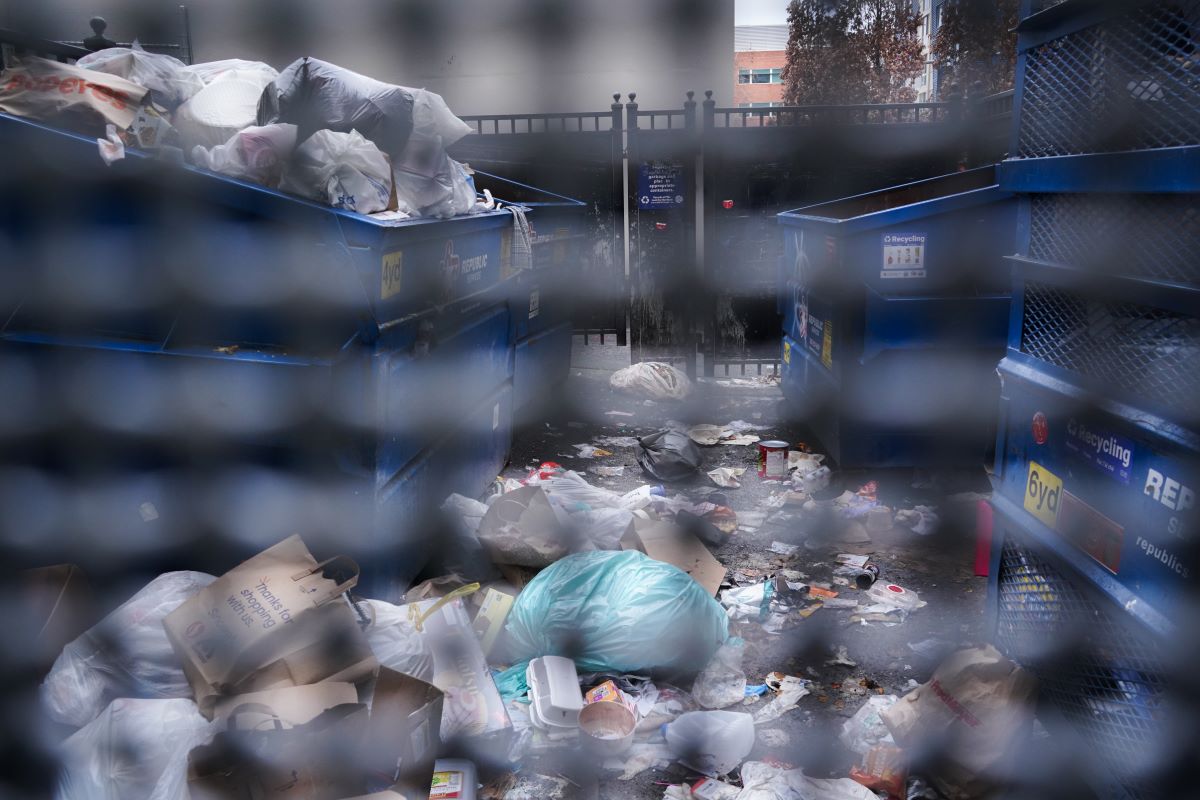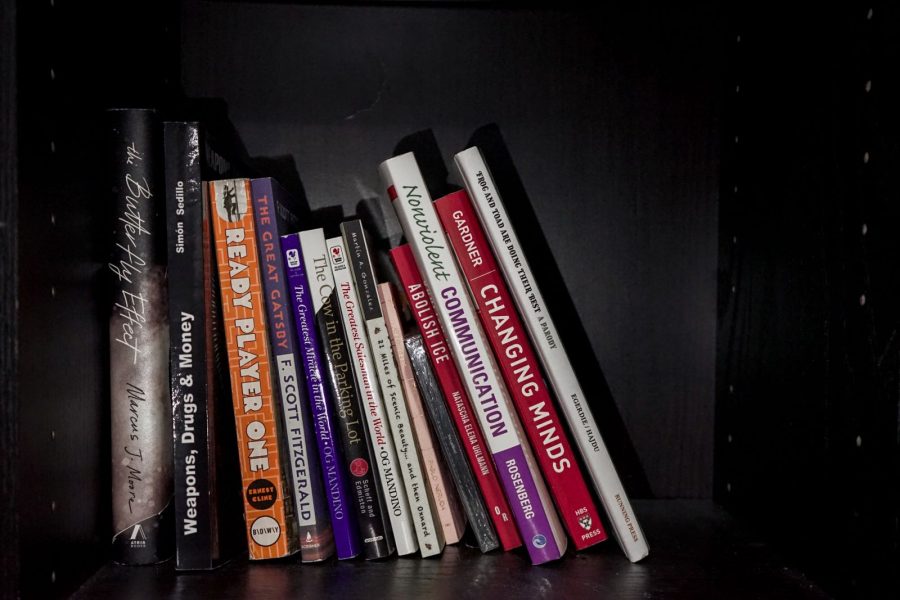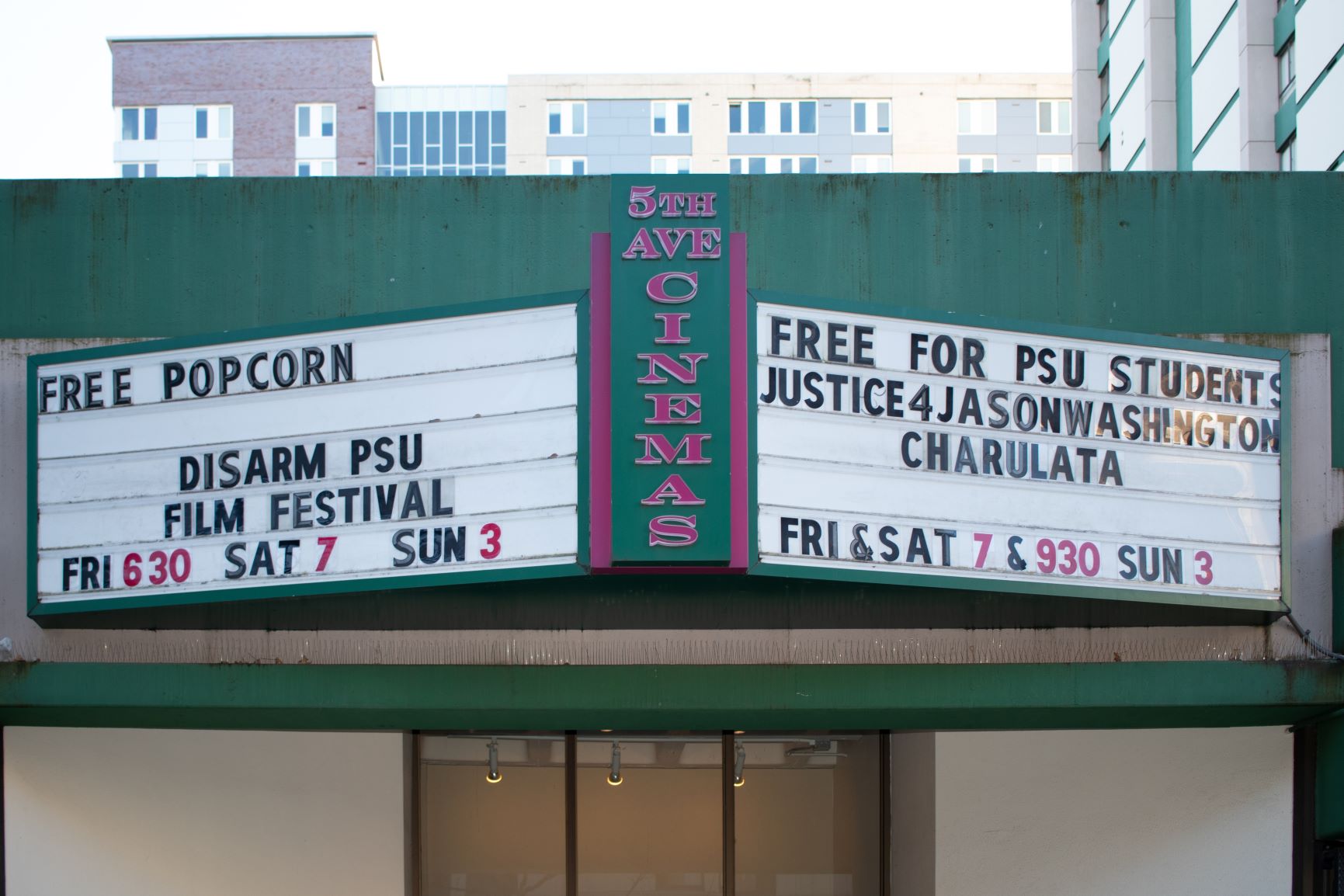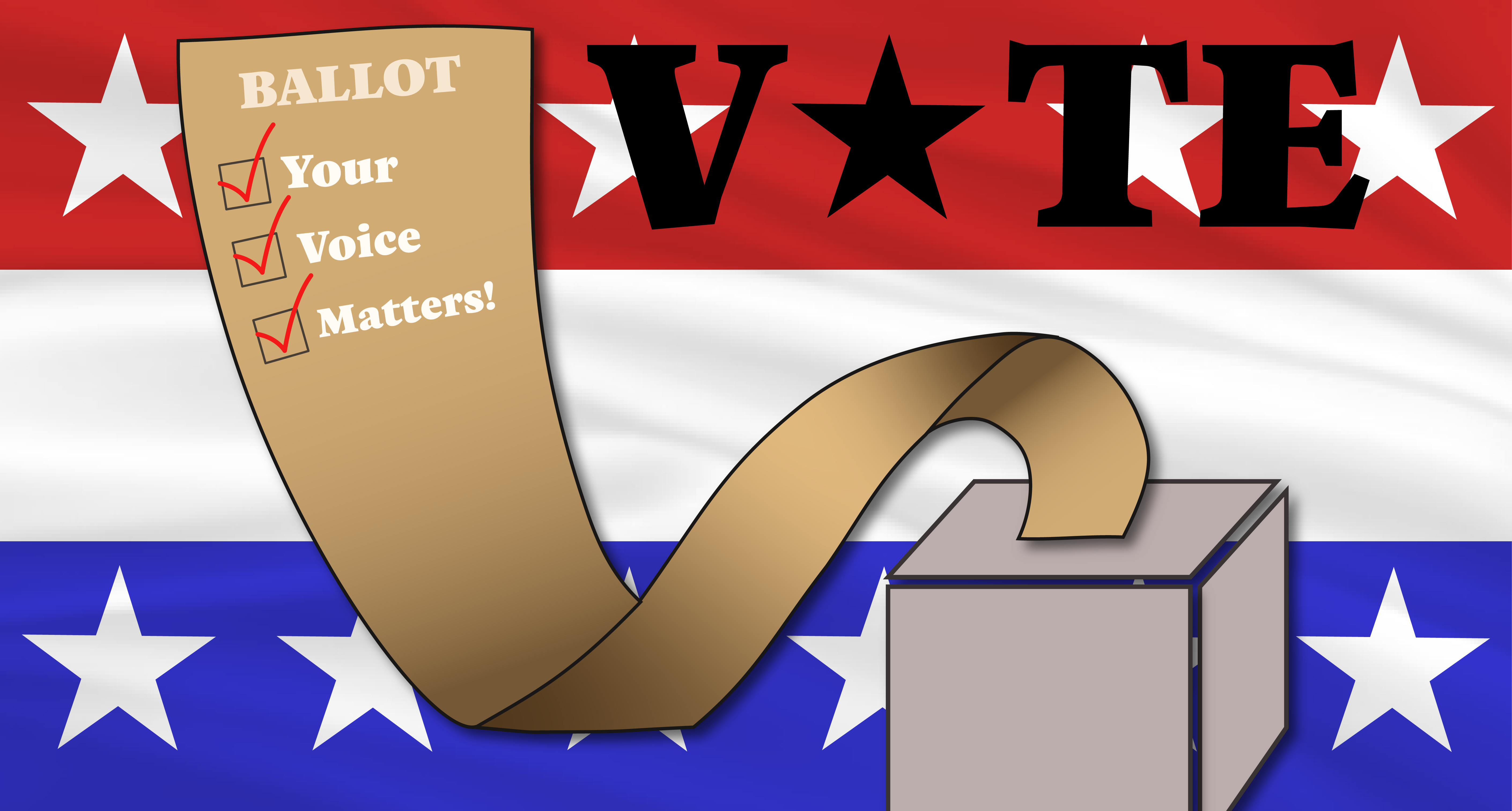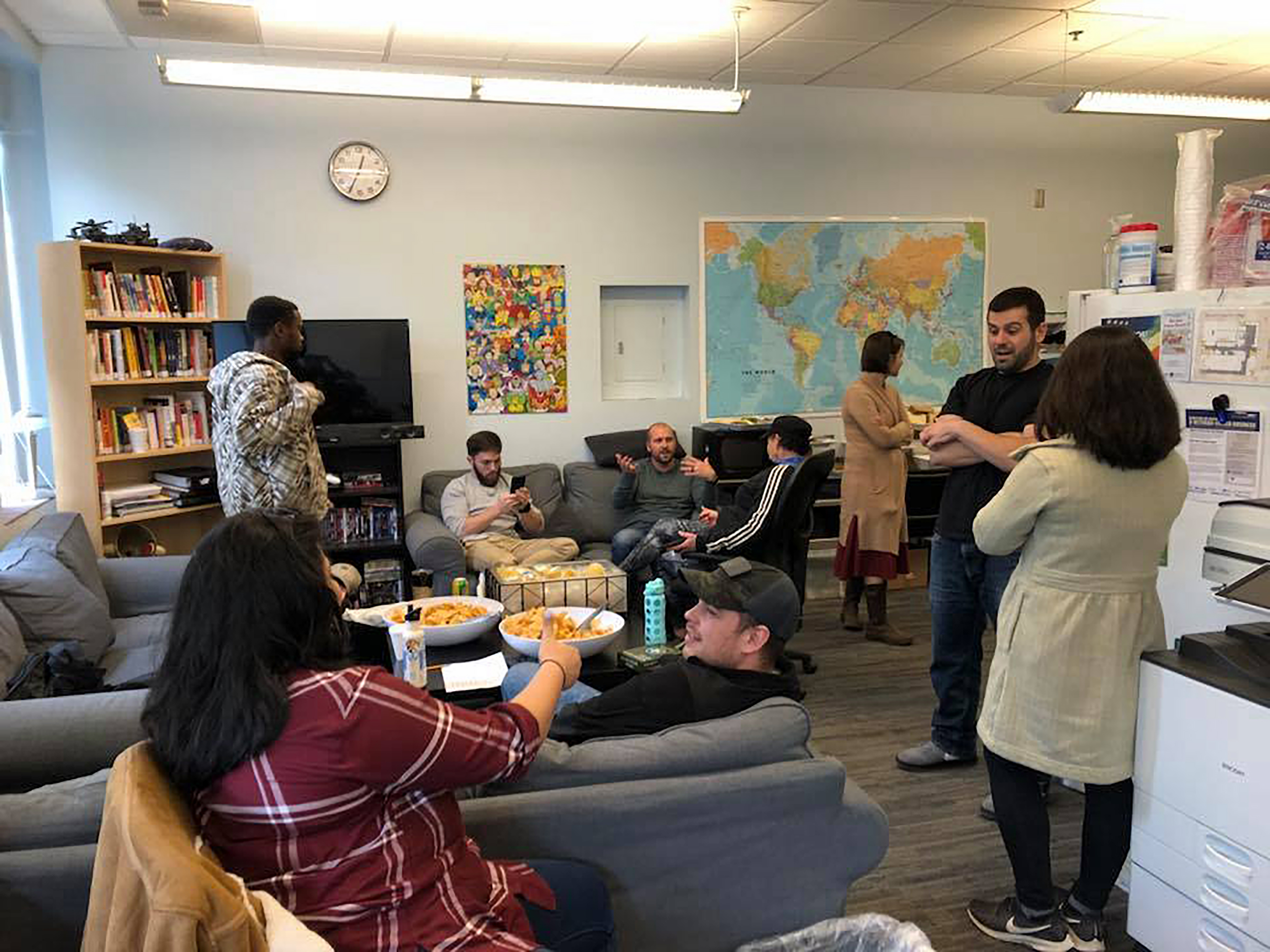The sight of overflowing trash bins has become a Portland staple—especially in the downtown area. The issue has spread to the Portland State campus in the last few years, causing concern among students and community members.
A recent Portland State Vanguard Opinion article addressed how houseless people are often scapegoats for excessive trash buildup. However, it explained how the housed population is often the real culprits of the overflowing trash throughout the city. Regarding the situation on campus, various factors contribute to garbage getting out of hand.
Zoe Slabodnik is an environmental studies and French student, the former Reuse Coordinator for the Planning & Sustainability Office and the former Waste Reduction Coordinator for the Student Sustainability Center (SSC). Slabodnik said she’s noticed an increase in trash buildup during the three years she has lived on campus.
According to Slabodnik, the trash buildup accumulating around campus—especially when on-campus students move out—is something students can help prevent.
“It’s not a student’s fault for having to throw items away when they move out—myself included as someone who is very conscious of all of the items I discard—but it’s partly because of our consumer culture,” Slabodnik said. “We are used to getting rid of the old and bringing in the new without realizing where the old is going… It’s also largely based on having little to no options to dispose of the old items properly or in a sustainable way.”
In order to help students reduce trash, Slabodnik said PSU should provide more education about campus sustainability resources, such as the Reuse Room in Cramer Hall, PSU EATS’ recyclable to-go containers in Ondine and the weekly volunteer teams the SSC facilitates.
“What needs improvement is constantly changing, but I’d say every aspect of sustainability and our waste management could be improved,” Slabodnik said. “But what would really help us improve is the amount of people who are passionate about sustainability. If we had more engagement with volunteers and also the student body, our programs would be more widely known… We can’t have successful programs and innovation without the help of people and collaboration.”
To reduce waste on campus, Slabodnik suggested that members of the PSU community educate themselves about the detrimental effects of plastic pollution, learn how to compost properly and review local recycling guidelines available on Oregon Metro’s website.
On the other hand, Slabodnik said the PSU administration should plan for events like move-out days by providing extra dumpsters or organizing trash pick-up days.
Cleo Needham is an environmental studies and sustainable urban planning student and the SSC’s garden coordinator. She lived on campus for two years and currently lives in the area. Needham said she noticed the trash buildup but understood that custodial staff may be understaffed and unable to keep up with the level of waste on campus.
“I’m okay with extra waste knowing that PSU will continue to work on it,” Needham said. “I think people could try to not overflow trash cans by choosing a trash can that is not full. They can choose to wash and recycle plastics. They could research what plastics or paper or electronics can be recycled. I think investing in better recycling or food waste systems would improve things.”
Since 2017, janitorial staff have been contracted through the nonprofit organization Relay Resources. Custodial Services was unavailable for comment, and the Facilities and Property Management website shows that the custodial supervisor position is currently unfilled.
Brandon Lesowske—assistant director of the Planning & Sustainability Office—said there are plans to revamp the Reuse Room and highlighted PSU’s contributions to sustainability.
“PSU is always looking to improve in these efforts, and the Planning & Sustainability Office is open to hearing from those that we serve in what steps the campus community would like us to take next,” Lesowske said. “When possible, I would highly encourage members of the PSU community to engage with others—and our office—around these topics. We see this work as being a collaborative effort, and without the PSU community’s involvement it can become challenging to know if we are representing the values and ethos of those we serve.”
Slabodnik said students should get involved by volunteering or working for the university if they want to improve campus conditions like waste buildup.
“If you want positive change, you are already motivated and certainly capable of making things happen,” Slabodnik said.

